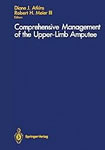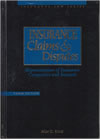All Articles
Aquatics Safety
Family Issues
Architecture
Feng Shui
Arms - Guns - Weapons
Finance
Attorney Fees
Food & Beverage
Automotive - Vehicular
Gems & Jewelry
Banking
Healthcare Facilities - Hospitals
Boating
Human Factors
Business Consulting
Human Resources
Chemical Industry
Hydrology
Child Welfare
International Trade
Child Witch Phenomenon
Legal Issues
Computer Forensics
Marine - Maritime
Corrosion
Metallurgy
Cosmetology: Hair / Makeup
Nursing
Counseling
Pain Management
Criminology
Pharmaceuticals
Crisis Management
Police Practices & Procedures
Damages
Premises Liability
Education & Schools
Psychiatry
Elevators - Escalator - Automatic Doors
Radiology
Energy - Utilities
Real Estate
Engines (Combustion - Diesel)
Sexual Abuse - Molestation - Harassment
Enterprise Resource Planning (ERP)
Supply Chain Management
Environment
Taxation
Exercise & Fitness
Underwriting
More...

EXPERT-WITNESSING-PAGE ARTICLES MAIN PAGE
. Contact Us if you are interested in having your work published on our website and linked to your Profile(s).
All Articles
Addiction Issues & Substance Abuse
Finance
Alcohol, Tobacco & Other Drugs
Food & Beverage
Aquatics Safety
Forgery & Fraud
Archaeology - Archeology
Gems & Jewelry
Arms - Guns - Weapons
Healthcare
Automotive - Vehicular
Healthcare Facilities - Hospitals
Bacteria - Fungus - Mold Investigation
HVAC - Heating, Ventilation, Air Conditioning
Blockchain Information
Injury
Boating
Intellectual Property
Branding - Brand Management
Land Mapping - Surveying - Zoning
Business Consulting
Life Expectancy - Life Care Planning
Business Management
Linguistics
Child Welfare
Marine - Maritime
Child Witch Phenomenon
Mediation
Corrosion
Mining
Design
Police Practices & Procedures
Digital / Crypto Currency
Product Liability
Digital Forensics
Psychiatry
Economics
Public Speaking
Elder Abuse
Securities
Engines (Combustion - Diesel)
Slip, Trip & Fall
Ethics / Ethical Duties
Taxation
Expert Witnessing
Transportation
Eyewitness Testimony
Warnings & Labels
Feng Shui
Workplace Violence
More...
Featured Articles
There are no active articles here at this time. Please use the search bar, try another category, or contact us if you would like to contribute an article.
This Article is unavailable. Contact Us
Search articles by title, description, author etc.
Sort Featured Articles
Featured resources
Comprehensive Management of the...
by Diane Atkins, OTR, et al
Against Violence Against Women: The...
by Rona M. Fields, PhD
Insurance Claims and Disputes:...
by Allan D. Windt
Follow us










